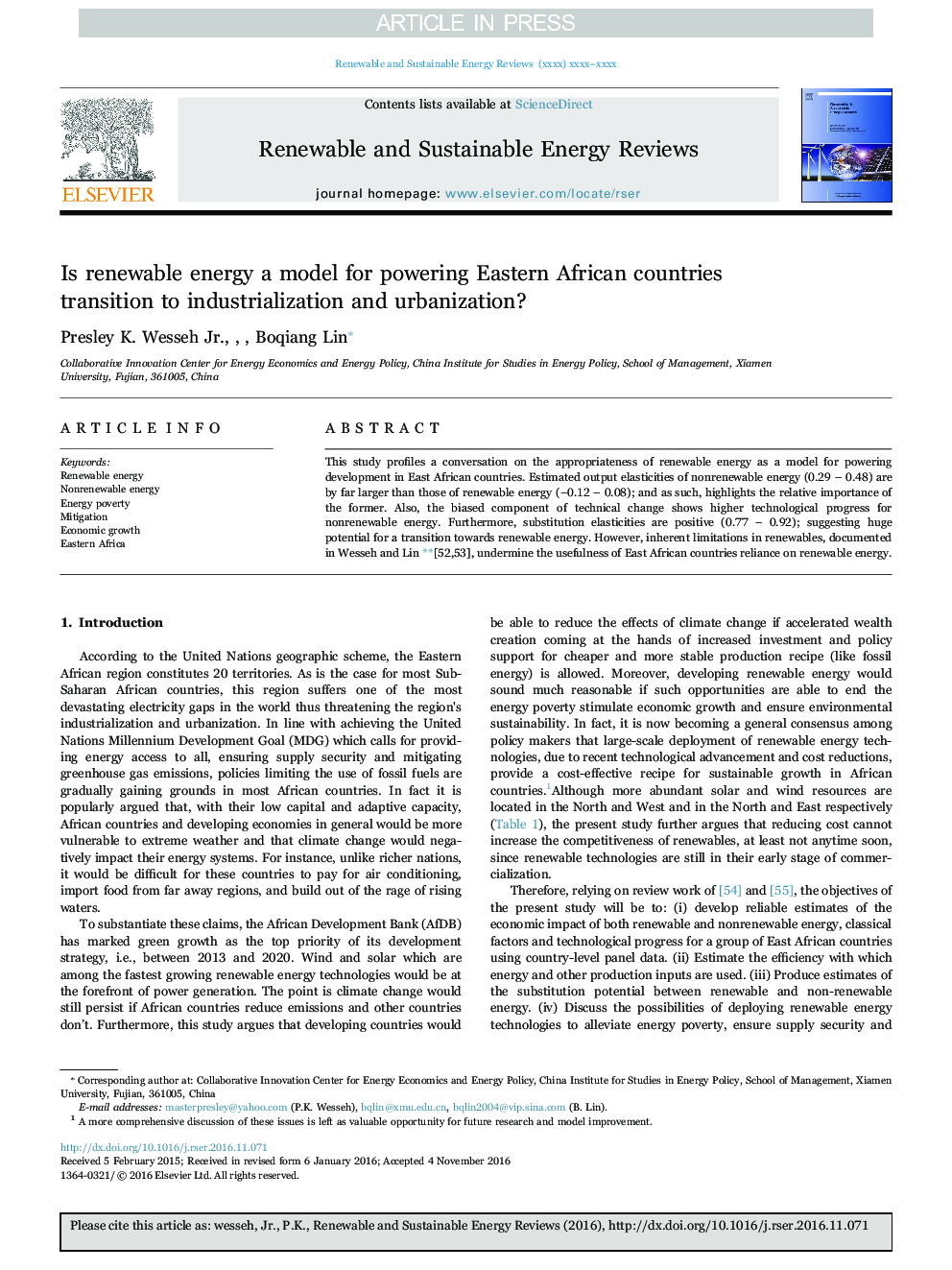| Article ID | Journal | Published Year | Pages | File Type |
|---|---|---|---|---|
| 5482888 | Renewable and Sustainable Energy Reviews | 2017 | 9 Pages |
Abstract
This study profiles a conversation on the appropriateness of renewable energy as a model for powering development in East African countries. Estimated output elasticities of nonrenewable energy (0.29 - 0.48) are by far larger than those of renewable energy (â0.12 - 0.08); and as such, highlights the relative importance of the former. Also, the biased component of technical change shows higher technological progress for nonrenewable energy. Furthermore, substitution elasticities are positive (0.77 - 0.92); suggesting huge potential for a transition towards renewable energy. However, inherent limitations in renewables, documented in Wesseh and Lin **[52,53], undermine the usefulness of East African countries reliance on renewable energy.
Related Topics
Physical Sciences and Engineering
Energy
Renewable Energy, Sustainability and the Environment
Authors
Presley K. Jr., Boqiang Lin,
